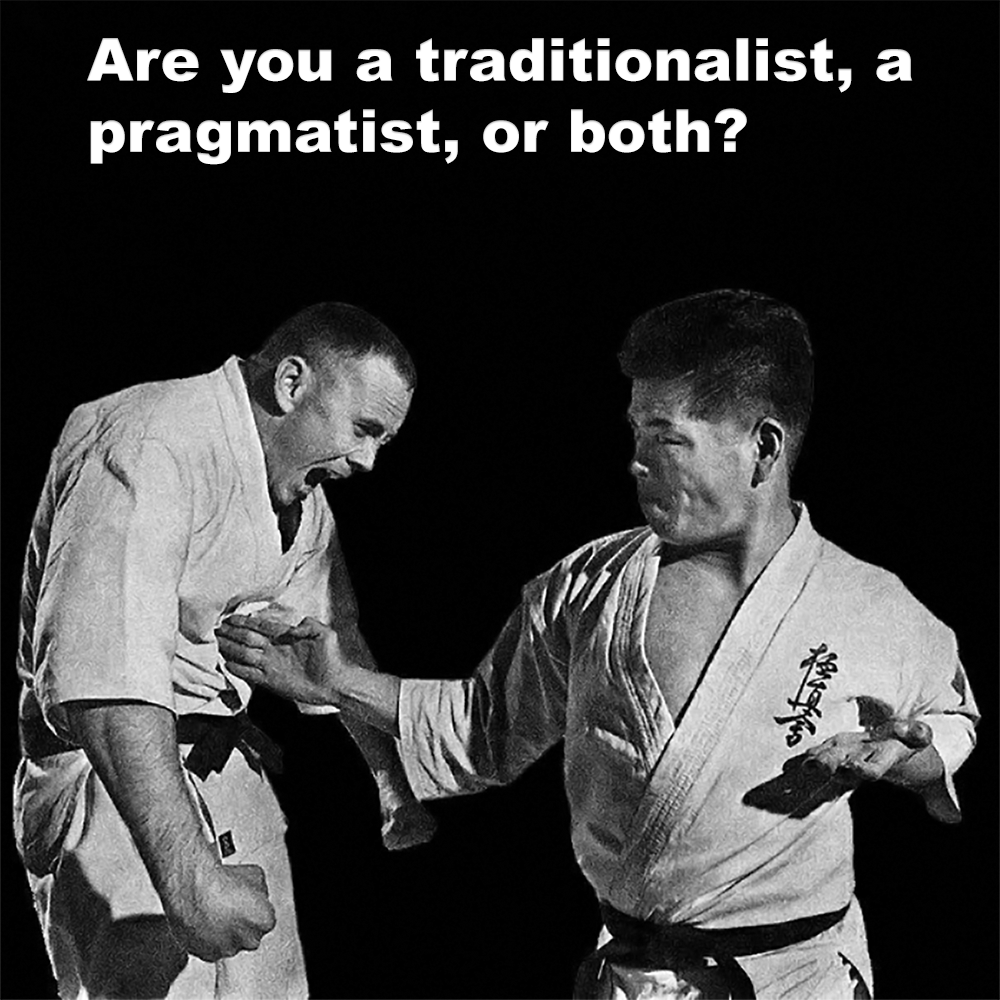
(2 minute 41 second read)
From the comments on a recent article, many people seemed to be offended because of my use of the word “traditional”, some calling me insulting, rude, offensive and more.
.
I wrote the article with the intention of shedding light on instructors who falsely claim to teach self-defense, who are actually teaching “traditional” 3K, competitive karate, etc, as practical self-defense.
.
From these comments, there is a misconception that my critique of certain traditional karate practices is an insult to the entire art form. This could not be further from the truth. Some missed the point of the article, and some did not read the article in its entirety before commenting.
.
Having trained extensively in traditional karate since the 1970s, I hold deep respect for karate’s legacy and core values. I still do; I am a traditionalist, but a pragmatist too.
.
It was also stated, ‘Who are you to be such an expert on violence?’ Firstly, I don’t claim to be an expert on violence. However, my experience has included witnessing a significant amount of violence firsthand, and unfortunately being involved in some of it – both professionally in my career and personally. This has instilled a strong belief in the importance of genuine self-defense training, if that is your main focus.
.
While I hold immense respect for traditionalists who practice with integrity and within proper context, there are concerns (for me at least), regarding instructors who advertise self-defense as part of their teachings, while solely focusing on karate-specific, 3K, tournament, karate-ka vs karate-ka attacks and defenses, neglecting the realities of real-world confrontations.
.
This approach does not effectively translate to real-world scenarios and falls short of true self-defense preparation.
.
While I wholeheartedly admire those who uphold karate’s spirit and traditions in a safe and ethical manner, there is a disparity between what some advertise, and what they deliver.
.
There are amazing facets to karate; including sport, tournaments, Budo, fitness, children’s karate, character development, etc. All of these aspects offer valuable training.
.
However, for self-defense purposes, it is crucial for instructors to be transparent with their students. Students deserve to understand the specific focus of their training so they can make informed decisions about their self-defense preparedness.
.
Many students join a class because they want to learn to defend themselves. Perhaps something has happened in their lives they were not prepared for and want to make sure it doesn’t happen again.
.
Isn’t it important as instructors, that we don’t fail them and we are able to provide what they need, if we can?
.
Accepting students who want to learn self-defense just to make up the numbers and add some extra dollars, is not the best for them.
.
It’s crucial to differentiate between the various aspects of karate. Why? Because there is NO one size fits all, each one has its own context, its own area of expertise. Yes, of course there is a crossover, and each has its own merits. However, it’s misleading to present any one approach as a comprehensive and genuine self-defense solution.
.
Integrity and honesty demands that instructors accurately represent the curriculum they offer, allowing students to make conscious choices about the investment in their training.
.
Isn’t that fair? Because from the comments I received, the majority seem to be unconcerned, and perhaps this is why some, including other fighting arts, view some karate practices as ineffective, and even a joke!
.
Karate was created for civilian self-protection, in my humble opinion, this should mean pragmatic and functional karate. Unfortunately, this is not always the case. So, just be honest with yourself and others about what it is you can provide.
.
